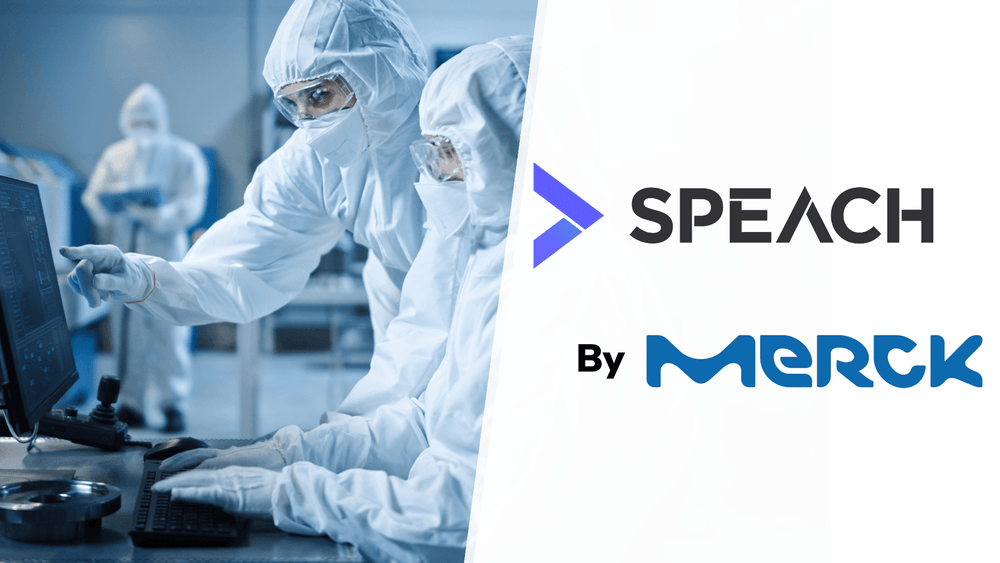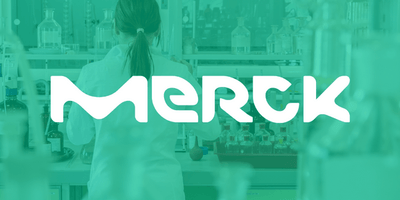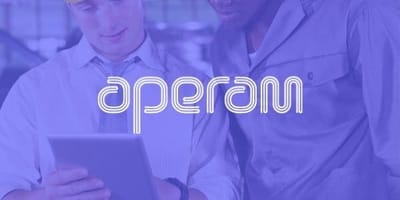In the high-regulated manufacturing domain, the name Merck Group resonates with quality and innovation. With a sprawling operational setup and a workforce committed to delivering excellence, Merck Group has continually set benchmarks in manufacturing practices. However, like many giants in the industry, Merck Group faced a formidable challenge that threatened to impede its operational efficiency - the traditional, cumbersome operator training processes.
In an era where time equates to money, extensive training procedures not only drain significant resources but often fail to achieve the desired level of comprehension and retention among operators. This gap in effective training translated into a higher rate of operational defects, ultimately affecting the bottom line. The need for a transformative solution was palpable, a solution that could encapsulate the vast array of operational procedures into a digestible, engaging format, ensuring not only swift learning but also effective application on the shop floor.
Enter Speach, an AI-Powered Video Training & Procedures (SOPs) Digitization Platform, designed to metamorphose lengthy, boring training modules into engaging, bite-sized visual content. Speach’s proposition was simple yet revolutionary - transform the way operators learn and apply procedures, thereby empowering them to execute their tasks with precision and efficiency. By offering a platform that could turn the exhaustive 50-page SOPs into interactive micro-content, Speach aimed to address the core pain points expressed by Merck Group.
The synergy between Merck Group's pursuit of operational excellence and Speach's innovative solution promised a journey toward enhanced learning, reduced operational defects, and a standardized way of executing tasks. As Merck Group embarked on this journey with Speach, the horizons of what effective training could achieve expanded, setting a precedent for the entire industry.
This narrative delves into the voyage of Merck Group from the shackles of traditional training modules to the liberating, efficient realms of modern, digitized operator training facilitated by Speach. Through this lens, we explore the challenges, the transformation, and the measurable benefits that ensued, painting a comprehensive picture of a modern solution to an age-old industrial challenge.
1 - Before Speach: The Challenges at Merck Group
The manufacturing sector, particularly in high-regulated environments, is a tapestry of complex procedures and stringent quality controls. Merck Group, with its expansive operations, was at the juncture where traditional training methodologies were proving to be a bottleneck. The challenges were multifaceted:
Lengthy Training Procedures:
The conventional training modules at Merck Group were extensive. Operators were required to sift through voluminous Standard Operating Procedures (SOPs) and training manuals. The time consumed in training was substantial, delaying the operators' transition to the shop floor. The static nature of these training materials often led to a disconnect, hindering the effective transfer of knowledge.
2. Inadequate Engagement and Retention:
The monotonous nature of textual training materials failed to engage the operators adequately. The retention of critical operational procedures was subpar, which manifested in errors during practical application. The absence of an interactive and visually engaging training medium was a glaring gap.
3. High Defect Rates:
The repercussion of ineffective training was evident in the high defect rates. Each defect not only translated into financial loss but also tarnished the reputation of quality associated with Merck Group. Moreover, rectifying these defects required additional time and resources, further escalating the operational costs.
4. Lack of Standardization:
The absence of a standardized training methodology led to inconsistencies in the way procedures were understood and executed by different operators. This lack of standardization jeopardized the uniformity in quality, a critical aspect in high-regulated manufacturing environments.
5. Operational Inefficiencies:
The cumulative effect of lengthy training times, high defect rates, and lack of standardization resulted in operational inefficiencies. The aspiration to achieve operational excellence seemed like a distant reality amidst these persistent challenges.
6. Feedback Loop:
The traditional training setup lacked an effective feedback loop. Identifying areas of improvement, gauging the understanding of the operators, and making iterative improvements in the training content were cumbersome processes.
7. Updating Training Material:
The dynamic nature of manufacturing processes necessitates regular updates in training materials. However, updating and disseminating new or revised SOPs and training materials was a time-consuming affair.
These challenges presented a scenario where both time and resources were hemorrhaging, with the quality of operations being compromised. The imperative for a transformative solution was clear – a solution that could encapsulate the essence of operational procedures in an engaging, easily digestible format while fostering a culture of continuous learning and improvement. The search for such a solution led Merck Group to the doorstep of Speach, heralding the beginning of a journey towards revolutionized operator training and enhanced operational efficiency.
2 - Implementing Speach: The Journey
As Merck Group grappled with the burgeoning challenges in operator training, the quest for a pioneering solution steered them towards Speach. The alignment of Speach's value proposition with Merck Group's pain points sparked the initiation of a collaborative venture aimed at overhauling the traditional training paradigm. The journey, although promising, entailed a blend of anticipation, adaptation, and learning.
1. Selection and Onboarding:
The selection process was meticulous, given the high stakes involved. Speach emerged as a front-runner due to its AI-Powered Video Training & Procedures (SOPs) Digitization Platform, which resonated with Merck Group’s vision of infusing modernity and efficiency into operator training. The onboarding process was systematic, ensuring a smooth transition for all stakeholders involved.
2. Resistance to Change:
Change, especially in a setting engraved with traditional practices, often meets resistance. The introduction of Speach's modern training methods initially sparked apprehensions among some operators and managers. However, the intuitive design and demonstrable benefits of Speach gradually dissolved the resistance, paving the way for a new training culture.
3. Customization and Integration:
Speach's flexible platform allowed for customization to align with Merck Group's specific training needs and operational nuances. The integration phase witnessed a seamless blend of Speach's digital prowess with Merck Group’s existing operational framework. The ease of creating engaging multimedia training materials and SOPs proved to be a game-changer.
4. Training the Trainers:
A pivotal aspect of this journey was 'training the trainers.’ Ensuring that the training managers, quality managers, and heads of plants were adept at utilizing Speach's platform was crucial for the downstream training effectiveness. Workshops and interactive sessions were organized to familiarize them with the platform's capabilities and to explore innovative ways to design training modules.
5. Pilot Implementation:
A pilot phase was rolled out to gauge the impact and to fine-tune the approach. The feedback from this phase was invaluable, providing insights into areas of improvement and reaffirming the positive impact on training efficiency and operator comprehension.
6. Iterative Improvements:
The journey with Speach was not about a one-time implementation but fostering a culture of continuous improvement. The analytics and feedback loops integrated into Speach facilitated a deeper understanding of operator engagement and learning efficacy, enabling iterative improvements in the training content.
7. Scalable Deployment:
Post the successful pilot phase, the scalable nature of Speach allowed for a broad-based deployment across various plants, ensuring uniformity in training and operational procedures.
This journey of implementing Speach at Merck Group elucidates a forward-thinking approach towards addressing the perennial challenges in operator training. The phases of implementation, from onboarding to scalable deployment, underscore the collaborative endeavor between Speach and Merck Group, setting a new benchmark in industrial training methodologies.
3 - Post Implementation: The Transformation and Measurable Benefits
The alliance between Speach and Merck Group transcended the traditional bounds of operator training, unveiling a realm of enhanced efficiency, comprehension, and operational excellence. The transformation was not only palpable in the daily operations but also reflected significantly in the measurable metrics.
1. Reduced Training Time and Costs:
The hallmark of Speach’s effectiveness was seen in the drastic reduction of training time. The bite-sized, engaging content enabled operators to assimilate information swiftly, cutting down the training time by a notable margin. This reduction translated into tangible cost savings, a vital metric in the competitive industrial landscape.
2. Enhanced Comprehension and Retention:
The interactive and visually appealing content boosted the comprehension and retention rates among operators. The measurable increase in retention was a testament to Speach's efficacy in delivering quality training.
3. Standardized Processes:
The uniformity in training materials ensured a standardized process across all operational units. This standardization was crucial in maintaining a consistent quality of output, significantly reducing the variability and defects in products.
4. Minimized Defects:
The decline in defect rates was a direct outcome of better-trained operators and standardized processes. The data reflected a substantial reduction in defects, underscoring the positive impact of Speach’s training methodologies.
5. Empowered Operators:
Operators now had the autonomy to access the precise training content at their convenience, often via QR codes. This empowerment was mirrored in the improved performance and confidence of the operators.
6. Feedback and Continuous Improvement:
The integrated feedback mechanism within Speach provided a platform for continuous improvement. The analytics derived from this feedback were instrumental in making data-driven decisions to further enhance the training content and methodologies.
7. Adaptability to Change:
The ease of updating the training materials in response to procedural changes or new regulations was a significant advantage. This adaptability ensured that the training content remained current and relevant, aligning with the dynamic nature of the manufacturing environment.
8. Scalability:
The success of the pilot implementation paved the way for scaling Speach across different plants within Merck Group. The scalability of Speach was a significant asset in ensuring uniformity in training across the diverse operational units.
9. Return on Investment (ROI):
The tangible benefits translated into a robust return on investment for Merck Group. The cost savings from reduced training time and minimized defects, coupled with enhanced operational efficiency, underscored the financial prudence of investing in modern training solutions like Speach.
The amalgam of transformation and measurable benefits post Speach implementation at Merck Group elucidates the profound impact that modern, digitized training can have on a high-regulated manufacturing environment. The narrative of Merck Group and Speach is a compelling testament to the potential of innovative training solutions in driving operational excellence, setting a precedent for the industry at large.
Watch the Merck customer testimnonial by clicking on the image below :
Conclusion
The expedition of Merck Group from traditional, lengthy training modules to an innovative, digitized training landscape through Speach delineates a remarkable tale of transformation. The palpable shifts in training efficiency, operator comprehension, and operational excellence underscore the profound potential of modern training solutions in a high-regulated manufacturing environment.
The narrative transcends the boundaries of Merck Group, resonating across the industry as a testament to the efficacy of embracing modernity in training methodologies. The ease of integrating Speach, the noticeable reduction in training time and defects, and the enhanced engagement of operators sketch a compelling argument for other organizations in similar sectors to follow suit.
Speach’s journey with Merck Group isn’t just a solitary story of success; it’s a beacon of possibility for the entire industry. It showcases the quintessence of how digitized, interactive training can be a cornerstone in achieving operational excellence and a culture of continuous improvement in today’s manufacturing landscape.
Moreover, the positive ripple effects created by this transformation, as evidenced by the recognition in industry forums and the burgeoning community of practice, highlight a broader acceptance and appetite for innovative training solutions.
In reflecting on this journey, one can envisage a future where the synergy between digital training platforms like Speach and industrious entities like Merck Group becomes a standard narrative, paving the way for enhanced quality, efficiency, and excellence in the manufacturing sector.






